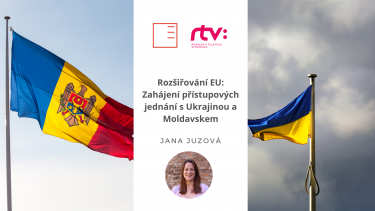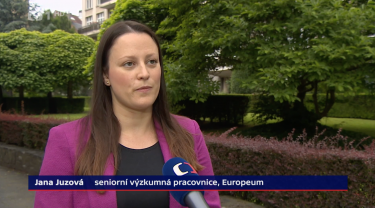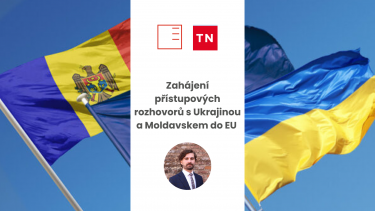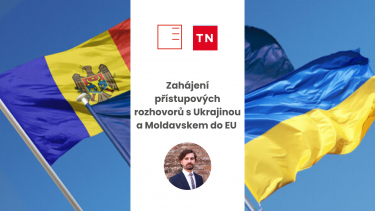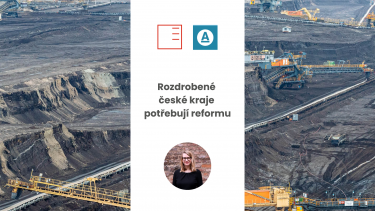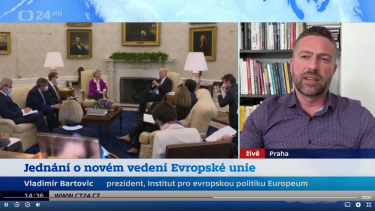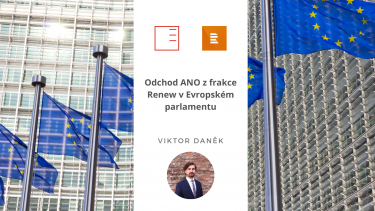RTVS | EU Enlargement: Initiation of Accession Negotiations with Ukraine and Moldova
The European Union has initiated accession negotiations with Ukraine and Moldova. What does this mean for its inhabitants? How do the accession talks proceed? And what must the countries fulfill? Jana Juzová, a senior researcher at EUROPEUM Institute, comments for Slovak RTVS Television.
Zjistit víceUdálosti ČT | Accession talks between Ukraine and Moldova and the EU
The European Union has initiated accession talks with Ukraine and Moldova. This decision was preceded by two years of negotiations. The accession process is expected to take several years. Jana Juzová, a senior researcher at the EUROPEUM Institute, commented on the topic for Evening News on Czech Television.
Zjistit víceUdálosti ČT | Přístupové rozhovory Ukrajiny a Moldavska s EU
Evropská unie zahájila přístupové rozhovory s Ukrajinou a Moldavskem. Tomuto rozhodnutí předcházely dva roky jednání. Očekává se, že přístupový proces potrvá několik let. Téma pro Události České televize komentovala Jana Juzová, seniorní výzkumnice v Institutu EUROPEUM.
Zjistit víceTN.cz | Ukraine and Moldova begin EU membership talks
In Luxembourg, formal accession negotiations with Ukraine and Moldova to the European Union have begun. Is this a significant progress towards their eventual EU membership? Which of these two countries has a stronger position? And how does the screening process unfold? Viktor Daněk, Deputy Director of EUROPEUM Institute, discussed these topics for TN.cz.
Zjistit víceTN.cz | Zahájení přístupových rozhovorů s Ukrajinou a Moldavskem do EU
V Lucemburku došlo k formálnímu zahájení přístupových rozhovorů s Ukrajinou a Moldavskem do Evropské unie. Znamená to výrazné přiblížení obou zemí k samotnému vstupu do EU? Kdo má lepší pozici? A jak probíhá "screeningový proces"? Téma pro TN.cz rozebral Viktor Daněk, zástupce ředitele Institutu EUROPEUM.
Zjistit víceAktuálně.cz | Fragmented Czech Regions Need Reform
In the autumn, regional council elections will be held. The existence of 14 regions in the Czech Republic, however, does not have a long tradition – they were only established in 2000, partly due to the anticipated entry into the European Union. This arrangement is now heavily criticized for their fragmentation, low and duplicative administrative capacities, and the associated negative impacts on the state budget. Klára Votavová, a researcher at EUROPEUM Institute, presents in her commentary on research on the capacities of the state and regions to draw from the Just Transition Fund, using the examples of the Karlovy Vary and Moravian-Silesian regions.
Zjistit víceČT24 | Negotiations on the new leadership of the European Union
Negotiations on the EU leadership positions will continue next week. On Thursday, leaders and presidents are due to make their final decision at a summit in Brussels. Vladimír Bartovic, President of EUROPEUM Institute, commented on whether Ursula von der Leyen will defend her post as President of the European Commission.
Zjistit víceČRo Plus | Withdrawal of ANO from the Renew Europe party in the European Parliament
The ANO political movement will withdraw from the liberal Renew Europe faction in the European Parliament, as it says it cannot promote the programme it went into the European elections with. Viktor Daněk, deputy director of the EUROPEUM Institute, commented on this.
Zjistit víceČRo Plus | Odchod ANO z frakce Renew Europe v Evropském parlamentu
Politické hnutí ANO vystoupí z liberální frakce Renew Europe v Evropském parlamentu, prý v ní nemůže prosazovat program, s kterým šlo do evropských voleb. K tomuto se vyjádřil Viktor Daněk, zástupce ředitele Institutu EUROPEUM.
Zjistit víceCall for Participants: Euro-Atlantic Future of Ukraine and Eastern Europe: Views from Visegrad
Are you a Master’s student from the Czech Republic, Hungary, Poland, Slovakia keen on international relations and NATO's strategic future? Join our workshop series to engage with experts, present your views on NATO’s Open-Door policy, and network with peers from the region.
Zjistit více
Staroměstské náměstí 4/1
Praha 1 - Staré Město
110 00
tel.: +420 212 246 552
email: europeum@europeum.org
https://www.europeum.org
